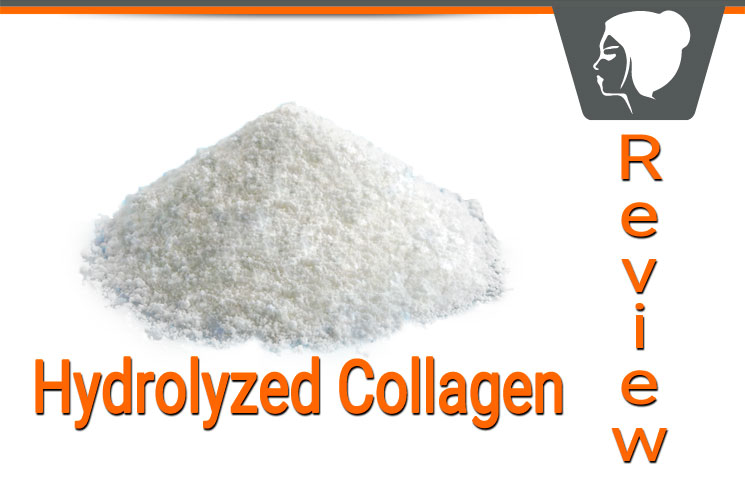Understanding Hydrolyzed Collagen
Hydrolyzed collagen, also known as collagen peptides, is collagen that has been broken down into smaller, easily digestible amino acids. Collagen is a major component of connective tissues and is abundant in skin, bones, tendons, and ligaments. The hydrolyzation process makes collagen water-soluble and increases its bioavailability, meaning it’s more readily absorbed by the body compared to its non-hydrolyzed form.
Sources of Hydrolyzed Collagen
Hydrolyzed collagen is derived from several sources, including bovine (cow), porcine (pig), chicken, and marine (fish) collagen. The choice between these sources often depends on dietary restrictions, allergies, or personal preference.
Benefits of Hydrolyzed Collagen
Skin Health
Regular intake of hydrolyzed collagen has been linked to improved skin elasticity, hydration, and a reduction in the depth of wrinkles. It stimulates the body to produce more collagen, which can lead to a more youthful appearance.
Joint Health
Collagen supports joint health by maintaining the integrity of cartilage, which is crucial for preventing degenerative joint disorders such as osteoarthritis.
Bone Strength
Collagen plays a vital role in maintaining bone density. Supplementation can support bone health, potentially reducing the risk of bone fractures and osteoporosis.
Muscle Mass and Strength
Collagen contains amino acids essential for muscle repair and growth, making it a valuable supplement for those engaged in regular physical activity.
Hair and Nails
Anecdotal evidence suggests that hydrolyzed collagen can strengthen nails and hair, promoting growth and reducing brittleness.
Scientific Backing
Numerous studies have investigated the effects of hydrolyzed collagen on skin, joint health, and more. While results are promising, it’s important to note that research is ongoing, and not all studies are conclusive. For instance, a study published in the “Journal of Medical Nutrition and Nutraceuticals” found significant improvements in skin elasticity and hydration after eight weeks of hydrolyzed collagen supplementation. Similarly, research in the “Osteoarthritis and Cartilage” journal reported that athletes consuming collagen experienced a significant reduction in joint pain.
Potential Drawbacks and Considerations
While hydrolyzed collagen is generally considered safe for most people, there are a few considerations:
Allergies
Individuals with allergies to specific sources of collagen (like fish or eggs) should avoid collagen from those sources.
Purity and Quality
The supplement market is not strictly regulated in many countries, so the quality and purity of hydrolyzed collagen products can vary. It’s essential to purchase supplements from reputable sources.
Vegetarian/Vegan Concerns
As hydrolyzed collagen is derived from animals, it is not suitable for vegetarians or vegans. Plant-based alternatives, though not direct substitutes, include supplements that support the body’s own collagen production.
Is It a Miracle Cure?
While hydrolyzed collagen offers numerous benefits and can play a significant role in health and wellness, calling it a “miracle cure” would be an overstatement. It can certainly contribute to overall well-being and complement a healthy lifestyle, but it’s not a standalone solution to health issues. Adequate nutrition, regular exercise, and proper care are essential for maintaining health and cannot be replaced by any supplement.
FAQs
How long does it take to see the benefits of hydrolyzed collagen?
The time frame can vary depending on the individual and the specific benefit. Some people may notice improvements in skin hydration and elasticity within a few weeks, while joint or bone health benefits may take several months to manifest.
Can hydrolyzed collagen help with weight loss?
There is no direct link between hydrolyzed collagen and weight loss. However, as part of a balanced diet and exercise regime, it can support muscle mass, which may indirectly influence metabolism and weight management.
Are there any side effects of taking hydrolyzed collagen?
Hydrolyzed collagen is generally well-tolerated, but some people may experience mild digestive issues such as bloating or a feeling of fullness.
How much hydrolyzed collagen should I take per day?
Dosages in studies vary, but most suggest between 10 to 20 grams of hydrolyzed collagen per day. It’s important to follow the dosage recommendations on the product label or consult with a healthcare provider.
Can I get enough collagen from my diet without supplements?
While collagen is present in foods like bone broth and certain cuts of meat, the concentration and bioavailability may not be equivalent to that of hydrolyzed collagen supplements. For targeted benefits, supplements might be more effective.
Is hydrolyzed collagen vegan?
No, hydrolyzed collagen is derived from animal sources. Individuals looking for plant-based options can seek supplements that support collagen production, such as those containing vitamin C or hyaluronic acid.
Can hydrolyzed collagen be added to any type of liquid?
Yes, because it’s hydrolyzed, it dissolves in both hot and cold liquids, making it versatile for incorporating into your diet through smoothies, coffee, or soups.
Conclusion
Hydrolyzed collagen presents a range of health benefits, from improving skin health to supporting joints and bones. However, it’s important to approach it with realistic expectations and not as a singular solution to health and wellness. When used as part of a balanced lifestyle, hydrolyzed collagen can be a valuable addition to one’s dietary regimen. As with any supplement, it’s crucial to consult with healthcare professionals, especially for individuals with existing health conditions or those taking other medications.







